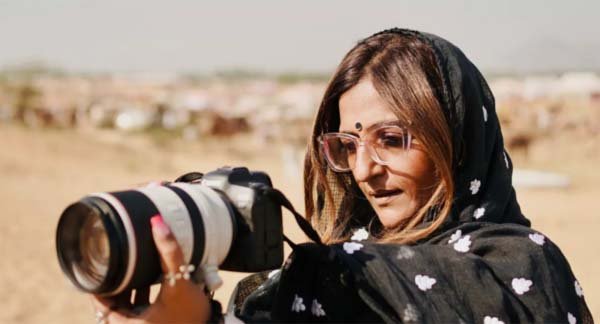New Delhi, Sep 25 (UNI) Religion, faith and spirituality offer people a sense of comfort, happiness and peace. However, director Sonali Rajkumar Devnani, in her documentary feature ‘The Divine Hustle’, shows how these higher concepts have also been subject to human greed.
The feature, which had its world premiere at the Chicago South Asian Film Festival 2025 on September 21, depicts the glowing magnificence of the Kumbh Mela – the largest religious festival in the world with crores and crores of attendees. Devnani seems awestruck as she watches the unending processions of pilgrims in awe through the cinematic lens and gets spellbound by the event’s sights and sounds.
But the same grand festival also displayed how faith and spirituality are now also being monetised, with religion having become an industry in its own right.
A thought-provoking exploration of the different sides of this ‘industry’, the documentary gives new insights into things such as. blind faith, spirituality, religion, and the other shades of grey surrounding the subject, showing how things are never really black and white.
The Mumbai-born Devnani’s dive into the religious industry revolves around three people – two children, Gopal and Khushi, and a man, Abhishek – who have been subject to the most cruel ironies of spirituality’s monetisation.
When asked about the reason for making the documentary, and the event.she used as her reference, the one-time journalist told UNI in an interview:
“Religious tourism is growing rapidly in India; it is already one of the biggest contributors to the economy. So choosing the Kumbh for a reference was ideal – it is the largest religious celebration in the world.”
A DIY production, it was largely self-financed and had a small crew behind it, with Mahesh Vasnani serving as producer, Gaurav Bhalerao and Satish Khare overseeing the cinematography, Gasper D’Souza serving as editor, and music composed by Neeraj Chouhan and Sanjay Sharma.
While noting that religious tourism offers key employment opportunities to many, particularly to the vulnerable sides of society, her feature also showed that their economic integration not only robs people of dignity, but it also leaves them desensitised due to the horrible treatment meted out to them.
“As for why I made this, I have wanted to explore this before, though what I really aimed to discover with this project was the truth. The truth about the industrialisation of religion, blind faith and its exploitation, the many ironies of this topic,” said the 45-year-old, who has in the past been involved with some Indie productions.
The ‘truth’ that Devnani discovered was a multi-faceted one, but one which left her satisfied still, even having a personal effect on her views as it reinforced her own personal stance regarding God, religion, faith, spirituality, and its economic aspects.
“The truth I was looking for, I didn’t have any preconceived idea of what it was. But the subject of faith being monetised is something that intrigued me. I am not a religious person, though I am very spiritual.
“I have a belief in the beyond, that some kind of higher power is definitely there. Personally, my study only furthered my distance from religion, after seeing what blind faith can do.”
As all of them come from a poverty-stricken background, the docu-feature casts a light on the bleak conditions of their lives, as much of what they earn is not even in their hands, while they are also subject to social harassment.
The three leads of the feature, in an ironic twist, have either no faith in God or are totally apathetic to the very concept, while they don their costumes during religious events, such as the Kumbh.
“I aimed to be completely objective and view this through a completely impartial lens. But when I met these people and got to know them, their lives, their surroundings, it was quite hard to make this documentary only from a storytelling side”, as each of the ‘characters’ in the story were real and soon they were actual people, no longer just characters.
“That can affect you, because you now know them. But on the whole, the truth I wanted to explore, I think I managed to do just that.”
Another reason for her choice of topic was to narrate the darker side of religious monetisation in India.
“We may be familiar with these topics here (India), because we keep hearing about these cases, so it may not have as much of an effect on us. But, people outside do not. I’d like to tell the audience abroad stories of these people,” she added.











